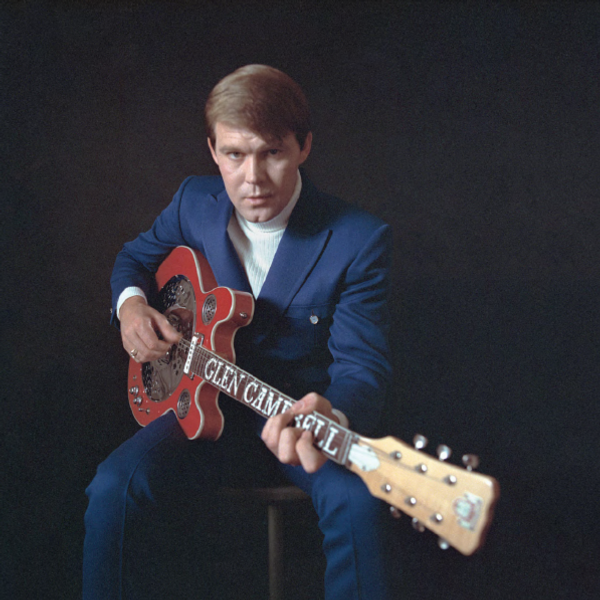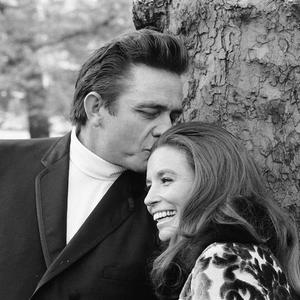




Link copied

Most recognize Glen Campbell (1936-2017) as the charismatic, golden voiced artist who lit up the pop charts in the 60s and early-70s with heavily orchestrated radio hits that appealed to a crossover audience. But he was much more.
Campbell’s proficiency as a master guitarist was legendary before he graduated to a solo star.
Later, his work with Jimmy Webb elevated that obscure songwriter’s material into timeless hits that remain fresh today.
Here is Holler’s list of some of his best hits from throughout his prolific six-decade career – providing just a taste of his expansive catalog:
Turn Around, Look at Me
This barely grazed the charts, landing at an anemic no.62 as Campbell’s first single, circa 1961. But with its lush orchestration and the singer’s enchanting vocals it set a template for what was to come.
In 1968 the syrupy vocal group The Vogues had a more popular hit with it, largely using his arrangement.
Kentucky Means Paradise
Campbell gave it another go working under the ad-hoc group The Green River Boys & Glen Campbell, this time showcasing his nimble guitar picking skills on a bluegrass tune that made it to no.20 on the country charts.
It wasn’t a genre he would revisit often, but he clearly had the talent to continue in that style.
Burning Bridges
OK, so the backing female vocals are pretty schlocky, but hey, that was the style that sold country music when this somewhat maudlin single was released in 1967 (check out Ray Charles’ country hits around that time for proof), lodging at no.18 on the country charts.
The tune chronicling a broken marriage was popular enough to become the title track of his album the following year.
The Legend of Bonnie and Clyde
As a session guy, Campbell played on Merle Haggard’s original 1968 hit chronicling the story of the titular outlaw couple, penned by Haggard and his then-wife Bonnie Owens.
But Campbell also recorded his own take on it the same year, adding the sweetening of sawing strings, western horns and his trademarked supple vocals.
I'm Not Going to Miss You
Notable as the last song Campbell recorded before his Alzheimer’s related death, the somber 2014 recording, co-written with Julian Raymond, recounts Campbell’s struggles with the disease and is heartbreaking in its raw honesty.
It won the Best Country Song Grammy for that year. Elton John later overdubbed his vocals to create a posthumous duet with Campbell.
I Wanna Live
Most famous as Campbell’s first no.1 hit (neither ‘Gentle on My Mind’ nor ‘By the Time I Get to Phoenix’, both far better songs, made it to the top spot), the John D. Loudermilk written tune with childlike lyrics of “I wanna live and let live / I want all the love this life has to give” don’t sound much better than they read!
Mary, Mary (by the Monkees)
Campbell played on a bunch of early Monkees hits, but took the lead and delivered the killer lick that made ‘Mary, Mary’ so memorable.
It was just one of the bands he anonymously provided backing behind as a member of the West Coast’s famed Wrecking Crew. Others were The Mamas and the Papas, The Association and The Beach Boys who, after touring with them, asked him to become a full-time member. He declined.
True Grit
The 1969 movie starring John Wayne was also a vehicle for co-star Glen Campbell (on his big screen debut).
The title song, penned by Elmer Bernstein and Don Black, appeared three times on the soundtrack (one was an instrumental) and was nominated for an Oscar and a Golden Globe but did not win either.
It charted Top 10 Country and Top 40.
Everybody's Talkin'
It’s somewhat odd that it took until 2017 for Campbell, on his final studio album Adios, to cover this durable Fred Neil composition from the 1968 movie Midnight Cowboy, that Harry Nilsson initially took to the charts.
The song always seemed influenced by Campbell’s limber, brisk tone, and he does it justice on a straightforward yet emotional reading that shows none of the hesitation his disease might imply. He passed a few months after its release.
Ghost on the Canvas
Replacements frontman/singer/songwriter Paul Westerberg seems an odd source for a few Campbell covers, but that’s what occurred on Glen’s 2011 release.
This melancholy tune was an obscurity even by Westerberg solo standards, yet it works wonderfully as the title track with lyrics of mortality (“I know a place between life and death for you and me”) mirroring the singer’s own impending physical and mental decline.
Scarborough Fair / Canticle
The Gentry/Campbell pairing was likely cooked up by the Capitol records marketing department to take advantage of the label’s two biggest sellers in 1968, but it clicks remarkably well on this Simon & Garfunkel cover.
They trade lead verses then combine for harmonies on the chorus. The orchestrated backing is sweet without being saccharine, and both seem committed to making the collaboration work.
Dream Baby (How Long Must I Dream)
Campbell’s producers certainly borrowed some of his sweeping sonics from Roy Orbison, whose own soaring vocals and superb orchestration combined country, rockabilly and pop resulting in gold-selling popularity.
Glen nails this cover of the Big O’s 1963 Top 10 hit without altering much from the original, bringing his vibrant style to the table.
Southern Nights
This Allen Toussaint composition hit the trifecta in 1977; no.1 on the pop, country and adult contemporary charts.
The bouncy bass, slight reggae rhythm and gospel backing singers, along with an ever-present banjo and the inescapable hummable melody combined to provide Campbell with one of his finest recordings.
Gentle On My Mind
It didn’t chart particularly well when released in 1967, only logging at no.62. But this breezy John Hartford composed folk song, reportedly written in about a half hour, became so identified with Campbell that he used it as the theme to his weekly TV show.
It also won four Grammy’s that year, two each for Campbell and Hartford. The story about a drifter who flashes on memories of the girl he left behind was inspired by the film Doctor Zhivago.
Try a Little Kindness
Campbell’s hot streak continued into 1969 with this jaunty pace, love and flowers zinger reflecting the ideals of the Woodstock generation to “shine your light for everyone to see”.
The words are corny but the melody and zippy orchestration lodge in your brain, making it a hit on three different charts; the highest being another no.1 on the Hot Adult Contemporary listing.
I'll Be Lucky Someday
A deeper track from Campbell’s Grammy winning 1969 (Album of the Year) By the Time I get to Phoenix, finds the singer going the quarter past three, bluesy, closing time Sinatra route on an old, rearranged Bob Wills nugget - to impressive results.
Taking the voice of the protagonist whose girl left him to marry someone else, Campbell mixes pathos and pride in his caramel smooth vocals.
Rhinestone Cowboy
Few could have maintained the quality and quantity of Campbell’s late-60s/early-70s work. So, by 1975, he was ready for a career reboot.
He got it big time with this gem, rising to the top spot simultaneously on Billboard’s Hot 100 and Country charts in the US and a hit in other countries.
The story of a fading star who has faith he’ll be back in the spotlight surely hit home with Campbell.
Galveston
Who knew that Hawaiian pop icon Don Ho would be a catalyst by introducing Campbell to this Jimmy Webb composition?
Campbell took the tune, about a solider about to go to war missing his girlfriend in Galveston, to no.1 and. With its spiraling orchestration, it’s an ageless piece of Americana.
By The Time I Get to Phoenix
Johnny Rivers was first to record this Webb tearjerker in 1965, crafting an arrangement not far removed from Campbell’s legendary version two years later.
Still, the latter owns it with his melancholy crooning of how he left his girlfriend for the titular destination, something she never believed he would do even though he warned her many times.
It was once considered the 20th most performed song in the 20th century. Nobody tops Campbell though, although Isaac Hayes’ 18-minute expansion gets a nod for the most audacious version.
Wichita Lineman
The Jimmy Webb/Glen Campbell collaboration arguably scored its most impressive achievement when they worked together to craft this hypnotic 1968 ballad.
It tells the story of a lonely telephone lineman who needs a small vacation and yeans for a woman, with the shimmering lyrics “Well I need you more than want you / And I want you for all time” that never fail to bring a tear.
The production of brushed drums and swelling strings that make way for a succinct Spaghetti Western reverberated guitar solo coalesces into a piece that, while somewhat dated in its production, remains enduring and poignant.
Listen and subscribe to Holler's The Best Glen Campbell Songs playlist below:




